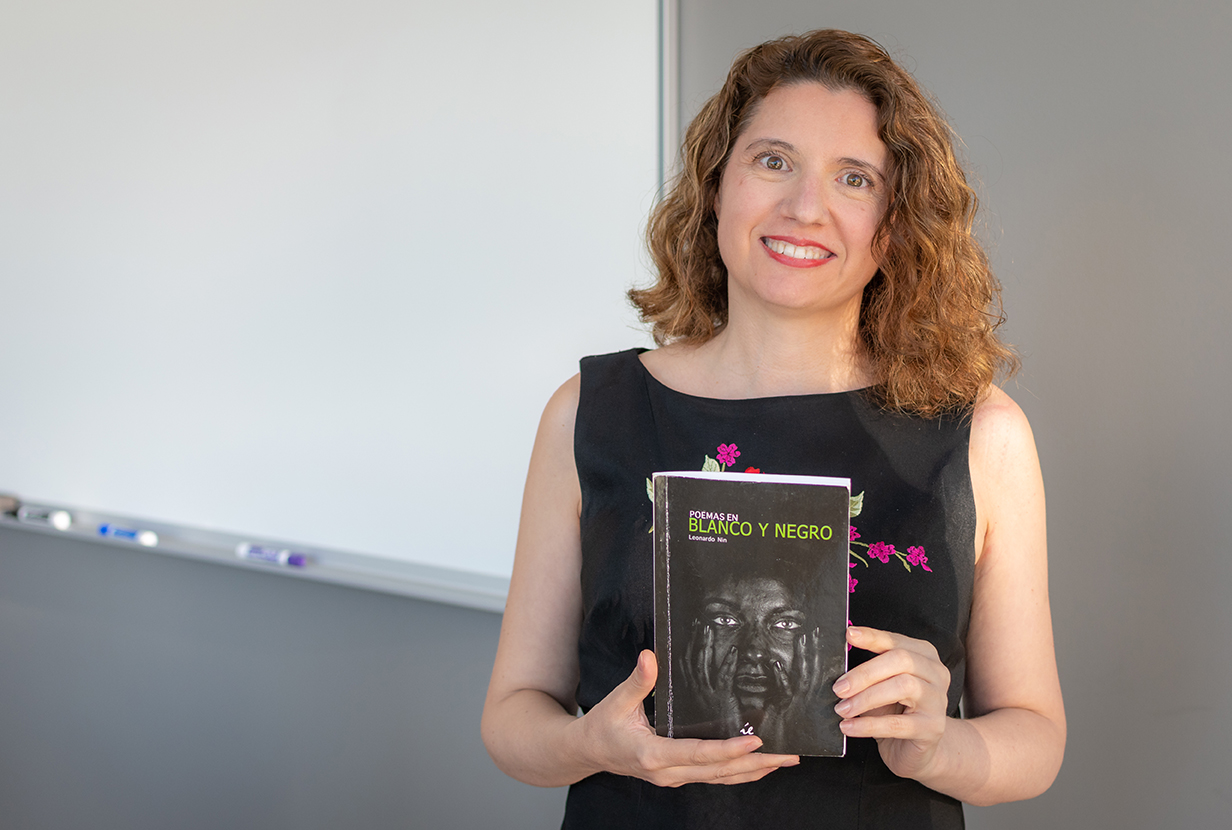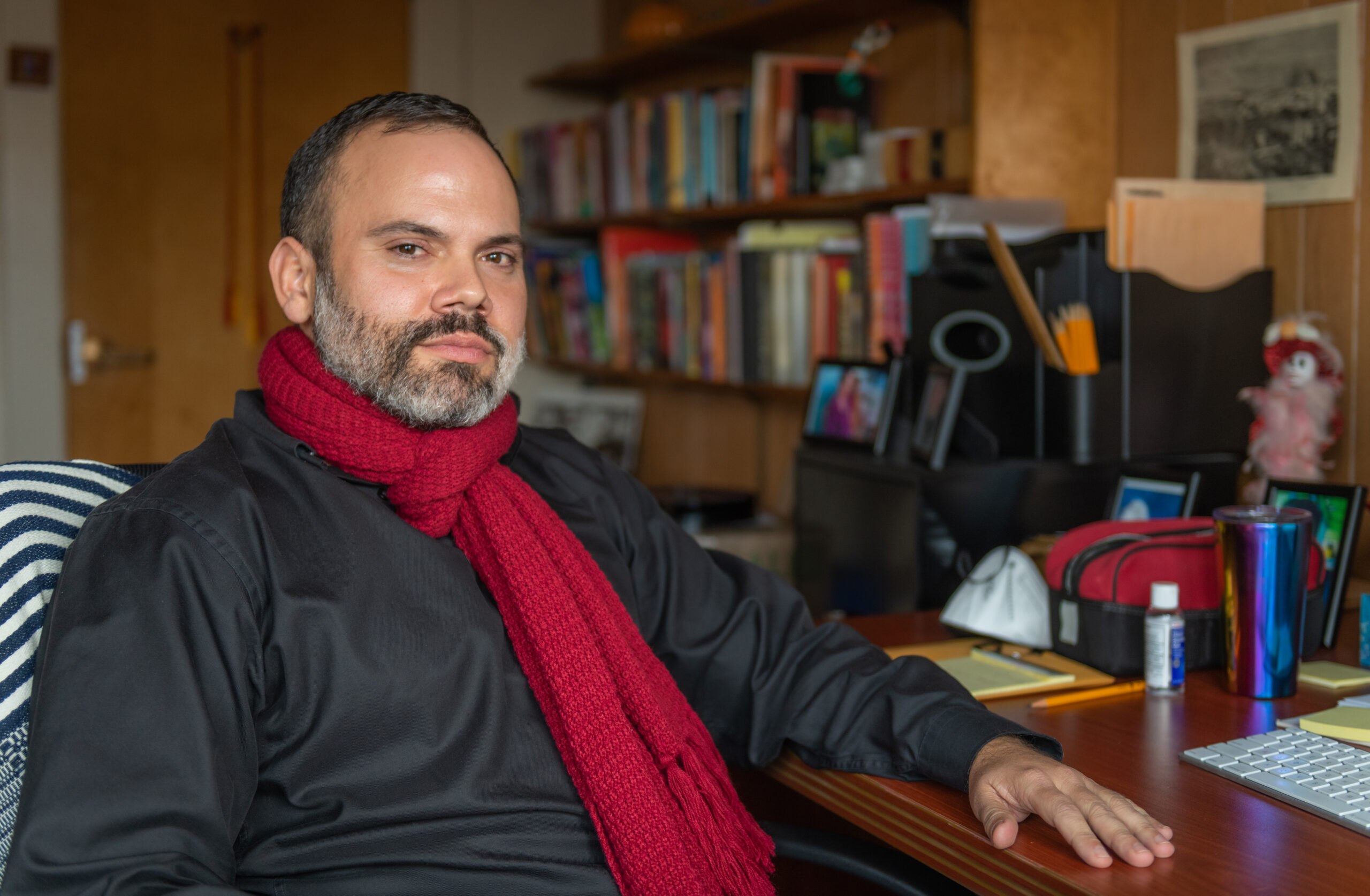Famed poet brings Dominican history to life — ‘en blanco y negro’

Leonardo Nin stood before Professor Belén Atienza’s classroom in Estabrook Hall last week and wove stories of his family, his country, and his people — in Spanish and English, prose and verse.
Nin, one of the Dominican Republic’s most renowned poets, visited Atienza’s Spanish 131 class, Social Change in Hispanic Literature, to read from his book “Poemas en blanco y negro” (San Salvador: Indole Editores, 2014). Atienza had previously translated and discussed the poems with her students, who came prepared with their questions.

Nin praised Atienza’s translations of his poems, as well as the interpretations of two of his works that students Ahiela Watson ’21 and Gabi do Nascimento ’21 presented for him. Students from Professor Diógenes Costa-Curras’s section 2 of the Spanish 131 class also attended the event, with many sitting on the floor, giving the event an atmosphere that was both festive and intimate.
In addition to his poetry, Nin spoke from an anthropological perspective about topics such as racism in the United States and the Dominican Republic, cultural appropriation and contemporary culture, the different languages, religions, and cultural practices of African persons who were brought as slaves to the Caribbean for the last 400 years, and the common origin of the human race.
Nin is a major voice in the Dominican Diaspora Literature Movement; the Latino Book Review called him one of the “5 Dominican Authors You Should Know.” “Poemas en blanco y negro” explores themes that include Afro Caribbean identity, social justice, and exile.
Students in attendance found Nin a passionate speaker, warm, humble, and knowledgeable.
“Being able to hear from Leonardo Nin himself was an incredible experience,” said Adelyn Garcia ’22 . “He spoke with a voice of knowing, with words of sheer, brutal honesty. I will carry his lessons of strength and camaraderie with me for years to come, and will remember that there’s no need to separate each other; we’re all on this planet together.”
“It was very inspiring to learn how Leonardo Nin uses his words to speak out about the injustice he observes in daily life,” said Jordan Holley ’23. “I enjoyed hearing the poet himself read some of his poetry — it felt even more meaningful this way.”
In addition to his volume of poetry, Nin has published several literary works, including two short story collections, “Guasábaras” (2003) and “Sacrilegios del excomulgado” (2008), and the play “Las porfiadas.” His works as an anthropologist and creative writer have appeared in several national and international anthologies and literary magazines.
Nin’s presentation, sponsored by the Department of Language, Literature, and Culture, was the first in a series of talks by poets about diaspora and oppression that will include a visit from Salvadoran poet Cristina Cortez and will culminate in a bilingual Spanish/English poetry reading, “Diaspora, Poetry and Translation,” on Oct. 31. Major poets from countries like China, Puerto Rico, and the Dominican Republic, including Mai Mang, Rhina Espaillat, Jimmy Valdez Osaku, Juan Matos, Osiris Mosquea, and Norberto Stuart, will read their poems about living as expatriates the United States.


